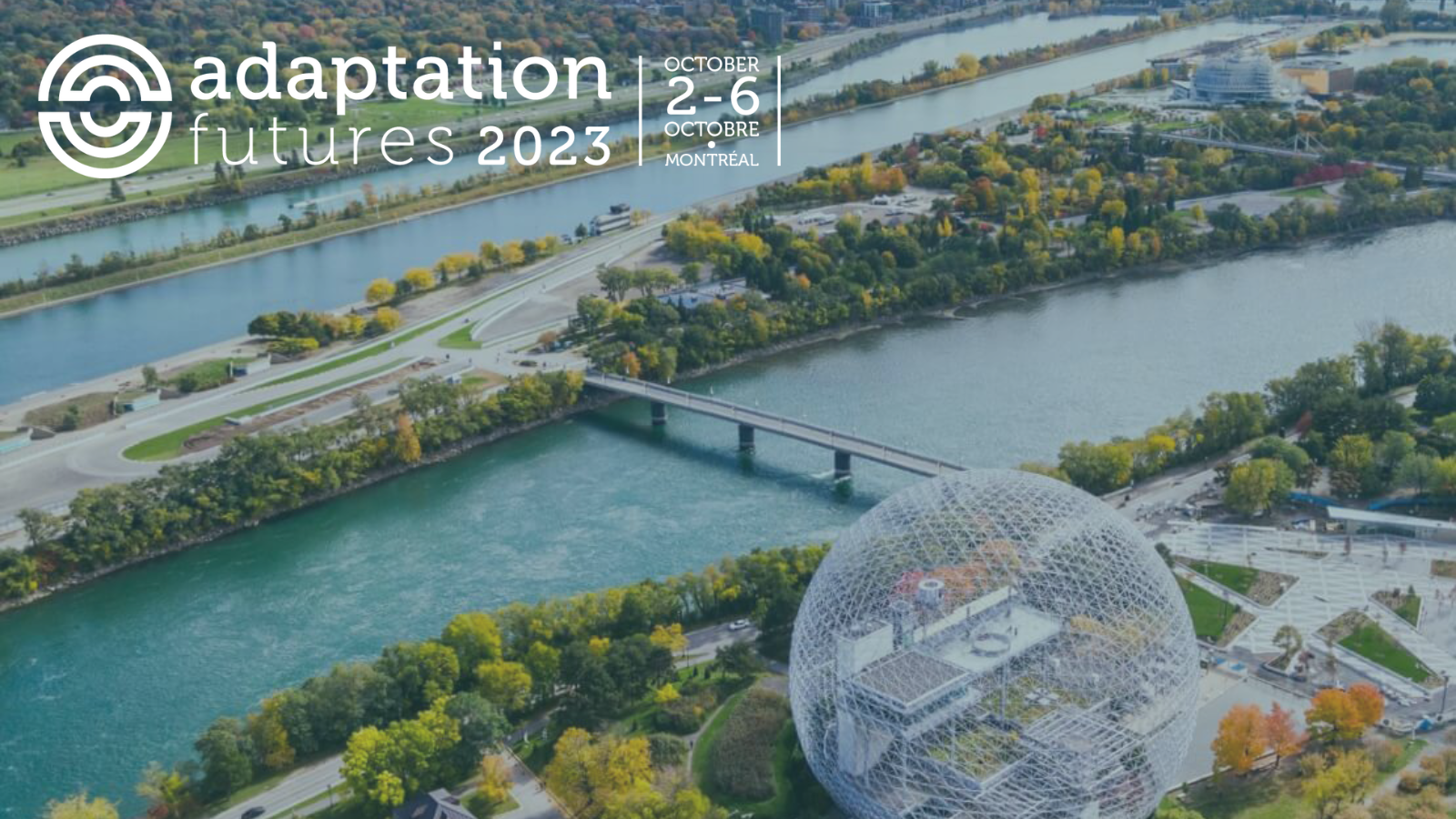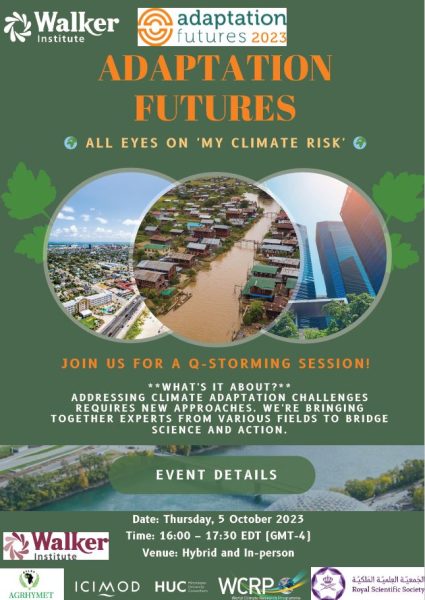
Side event: All eyes on ‘My Climate Risk’: Q-storming towards collective pathways to adaptation action, from local to global
Session 285 – Governance & Finance,
Date: 5 October,
Time: 16:00-17.30 (EDT) / 21:00-22:30 (BST),
Room: 520D (Hybrid – Zoom Room)

The Walker Institute will be attending the conference Adaptation Futures taking place from October 2 to 6 this year. More than 1500 members of the climate change adaptation community from around the world gather in Montreal to share their knowledge on the challenges and opportunities of adaptation. A new approach that synthesises cross-disciplinary insight and information is needed to address the adaptation challenges of the climate emergency. This requires forward-looking analysis based on integrated data and evidence, and a transformation in how natural and social scientists work alongside counterparts in the government, non-government and community sectors. Watch this space for updates on upcoming events and presentations.
A new approach that synthesises cross-disciplinary insight and information is needed to address the adaptation challenges of the climate emergency. This requires forward-looking analysis based on integrated data and evidence, and a transformation in how natural and social scientists work alongside counterparts in the government, non-government and community sectors. This hybrid ‘Q-storming’ session is designed to bring together representatives from all these communities, to explore how we can bridge science and socio-political action, addressing multiple risks while responding to local adaptation needs. It will draw on the break-through approach of a new World Climate Research Programme (WCRP) Lighthouse Activity, entitled ‘My Climate Risk’ (MCR).The title reflects the need to embed climate risk within its unique local and social context. Eight WCRP MCR hubs have been established globally and are going ‘broader and deeper’ in their work with local counterparts to assess risk and implement credible and effective climate actions. Examples will be presented as part of the Q-storming session. Q-storming is designed to come up with well-stated questions and problem formulations, not easy answers. To reach actionable solutions, we need first to identify obstacles, then map out local pathways to overcome them. Our virtual and in-person colleagues will contribute to this process, following short case-study presentations. The session builds on our AF2018 Q-Storm experience and introduces the use of Facilitated Q-Storming Tables using Mural Boards.
Participants
- Prof. Rosalind Cornforth, Walker Institute, University of Reading, UK
- Dr. Celia Petty, Walker Institute, University of Reading, UK
- Prof. Abdou, AGRHYMET, Niger
- Dr. Chi Huyen Truong, Himalayan University Consortium, ICIMOD, Nepal
- Prof. Iain Stewart, Royal Scientific Society, Jordan
- Prof. Ted Shepherd, Co-Chair, “My Climate Risk” Lighthouse Activity, World Climate Research Programme/ Department of Meteorology, University of Reading, UK
- Prof. Regina Rodrigues, Co-Chair, “My Climate Risk” Lighthouse Activity, World Climate Research Programme/ Universidade Federal de Santa Catarina, Brazil
- Dr. Narelle Van Der Wel, My climate Risk, World Climate Research Programme, Switzerland


